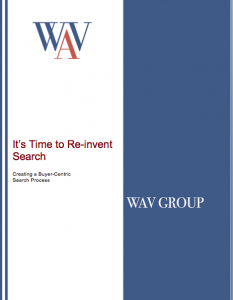 There’s a fundamental problem in the real estate business today. Since time immemorial real estate ‘searches’ have utilized a property-centric approach that ignores the other 50 percent of the business: the buyers.
There’s a fundamental problem in the real estate business today. Since time immemorial real estate ‘searches’ have utilized a property-centric approach that ignores the other 50 percent of the business: the buyers.
In the real estate industry, we focus so much on displaying listings hoping to attract a buyer without spending nearly enough time and resources to analyze and understand the market segment that are the drivers of the purchase. This is also symptomatic of the industry’s fundamental focus on the needs of agents, not consumers. Doesn’t it make more sense to focus on the needs of the consumer?
The marketplace has made a plethora of search tools available just about everywhere for consumers. In fact, 96 percent of buyers search multiple websites before contacting an agent, according to the National Association of REALTORS®. Fundamentally, this is why the process is called “house hunting”–buyers are forced to search, filter and pull properties “off the rack.”
Property search provides a shotgun approach to exposure. It may sound good in a listing presentation to say, “I’m placing this on 300 websites,” but how does this process in any way help match agents with new, active and revised listings with “real” buyers that are Willing, Able and Ready (WAR)?
This approach seems fundamentally wrong. Click here to download the complete white paper that fleshes out a whole new way to look at search.
Drowning in a Tidal Wave of Internet Leads
According to the public statements of leading consumer real estate portals, there are over 50 million consumers that simply like to search property sites each month to see what their next door neighbor’s house may be worth, dream about retirement or a move to a bigger home, or to simply look for home improvement ideas. These “voyeurs” have no intention of buying a home anytime soon, yet via lead management systems, they contact agents and soak up productive time best invested in working with “WAR” leads. All of this leads to a VERY unproductive Internet lead conversion rate.
Numerous industry studies show that 95 percent to 99 percent of the “leads” generated online will never close. According to evaluations we have done on behalf of some of our clients, most homes are getting less than one click-through per month and even fewer legitimate property inquiries.
Is property search, as we know it, dead?
The 2009 Swanepoel Trends Report addressed this same question nearly four years ago. Instead of creating opportunities, the avalanche of Internet leads has led to millions of hours of wasted agent time following up on dead ends.
The result? Agents start ignoring online leads because of perceived commoditization. Are one brand’s leads more or less a profitable source of business than another’s? Dismally low response times to online inquiries eliminate any opportunity to make Internet marketing work for them. This also angers potential customers. It’s no wonder the 2012 JD Power Home Buyer/Seller Satisfaction Study showed sizable drops in consumer satisfaction with both the buying and selling processes.
Lack of Responsiveness is #1 Consumer “Pain Point”
While it’s understandable why agents become jaded about Internet lead activity, it is a very dangerous practice. According to two studies WAV Group conducted recently – one for the National Association of REALTORS® and one for the Houston Association of REALTORS® – lack of responsiveness is the number one complaint from consumers about real estate agents. They are frustrated when they reach out to an agent online or via phone and never get a call back.
Consumers say things like, “How come agents are not interested enough in my business to even call me back? I guess they don’t really want to work with more clients.” This lack of responsiveness, exacerbated by an outdated search process, is weakening consumer relationships with our industry. If a consumer believes they need to be responsible for doing the “heavy lifting” in the property search process, they start to question why they are paying full commission to their agent. It’s a very slippery and unprofitable slope.
To read more of Time to Re-Invent the Search download the complete report!





This is a very well thought out paper and I really enjoyed the read. It prompted me to think about a few companies and products that I have had the privilege of looking at recently that I think will really help to jump start this change in how consumers search for properties and how agents display and market these properties.
Inrix – recently launched a real estate industry first: search for homes by INRIX Drive Time™, an innovative feature on Windermere.com that allows buyers to search for properties based on the drive time between work and home. The new search option provides consumers with an easy, visual means to find all homes for sale within a specific drive time between prospective properties and their work address, given typical rush hour driving conditions.
“As the economy picks up, more people are hitting the road to go back to work,” said Kevin Foreman, General Manager, GeoAnalytics, INRIX, Inc. “With traffic only getting worse, an acceptable drive time to work is moving up the list of “must-haves” for a new home.”
Consumers don’t measure distance in miles anymore, they measure it in minutes.
VoicePad – will be launching a set of new feature enhancements this month that they believe will help agents and brokers respond to internet leads more quickly and efficiently then ever before. According to VoicePad research over 42% of active internet leads/calls are not picked up. With VoicePads new enhanced product they now have the ability to allow agents or teams to include multiple phone numbers in their profile. When a consumer texts or calls the number on the sign it will ring and roll over to multiple numbers to increase the likely hood that consumer will reach someone. According to VoicePad this new technology has resulted in a 19% increase in calls picked up. When agents can easily tell that the call is being generated from VoicePad they know that consumer is sitting in front of their property and that makes these calls HOT leads.
AND Last but not least having a bank or repository of qualified high level buyer and seller leads available would absolutely change how properties are marketed today. Farming territories has always been a tool in the belt of agents but now you can use predictive science to help target the highest quality seller leads. Determining which leads you should spend your time on has been an age old issue but a new company out there is helping you to narrow down your farming areas and drill into your niche groups – http://www.mostlikelytolist.com.
MostLikelytoList.com is an innovative predictive data and analytics company. Using advanced algorithms and technology, we help real estate agents and brokers gain a competitive advantage by predicting and ranking the homes within a neighborhood or territory that are most likely to sell within the next 12 months. The time is now to really get focused and drill into your neighborhood is the most meaningful way possible.
you won’t be able to list it on the MLS service woithut paying for that and if you aren’t associated with a realtor you might not be able to list it at allyou’ll have to pay all the advertising costs yourself, be available for all the open houses obviously, find buyers yourself since hardly anyone will know about your house being for sales since it won’t be on MLSYou’ll have to be able to try and find all the necessary paperwork sales agreements, etcYou don’t pay any commission when you buy a house only when you sell if another agent brings you a buyer you will still have to agree on a commission for them and they will expect the normal 3% for the buyer’s sidewith the current market, house are taking up to 9 months to sell WITH real estate agents working with the sellers I magine you would probably have a add a few months to that figure working on your own Still think it’s really worth it? and I’m not a real estate agent and have no family members who are I’m a RE investor just starting out, but I know I wouldn;t have all that time to devote to the process woithut help from an agent